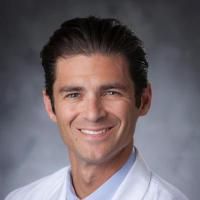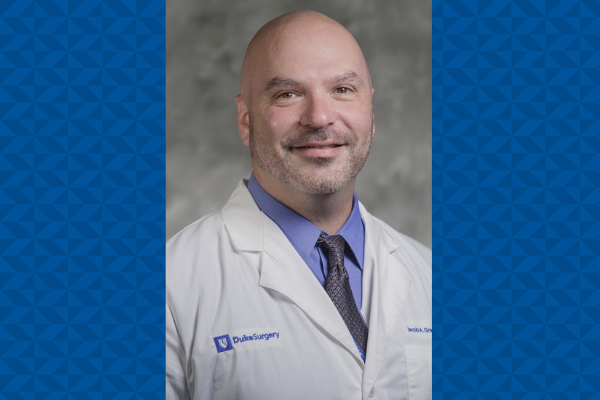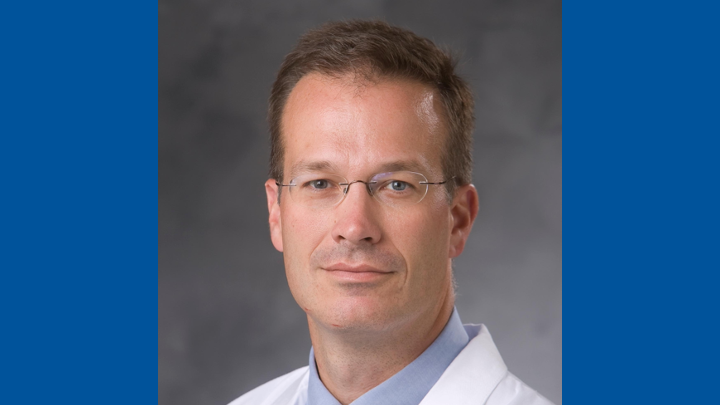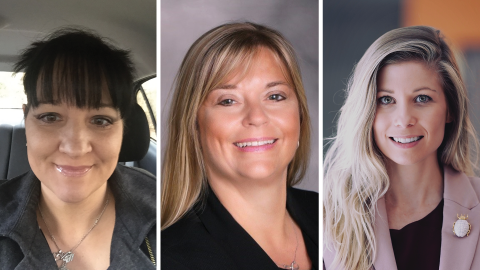The Duke Minimally Invasive Thoracic Surgery Fellowship is a comprehensive training program in advanced noncardiac thoracic surgery, intended for those who have graduated from or intend to complete an ACGME cardiothoracic residency.
Foreign medical graduates who do not plan to practice in the United States are also eligible. It is not intended as an alternative path to thoracic credentialing, but rather as an enhancement for specialized training in minimally invasive and robotic techniques, multidisciplinary thoracic and foregut oncology, and benign and malignant foregut surgery.
Program Director
Associate Program Director
Duration: 1 year
The fellowship will provide advanced training in all facets of minimally invasive general thoracic surgery techniques to graduates of cardiothoracic residency programs. Fellows gain broad, extensive experience in all aspects of general thoracic surgery, including both benign and malignant disease. A particular emphasis of the operative volume includes both minimally invasive lung resections, including wedge resections, segmentectomies, lobectomies, and pnuemonectomies, and minimally invasive esophageal resections. Operative experience will include robotic procedures of both the chest and the foregut.
In addition, the fellow will gain experience in advanced endoscopic and bronchoscopic techniques, including endobronchial ultrasound (EBUS), radiofrequency ablation of Barrett's esophagus, photodynamic therapy (PDT), lasers, and stents, POEM, EMR, ESD, etc. In addition to gaining operative experience, fellows will participate in both outpatient clinic and as well as all aspects of inpatient care. Patients will be involved from initial patient diagnosis, work-up, and pre-surgical evaluation to both short-term and long-term follow-up.
The fellow will work with residents enrolled in the accredited Thoracic Surgery and General Surgery programs at Duke University, as well as with advanced practice providers in both the inpatient and outpatient setting. The fellow will actively participate in all educational conferences and activities. The fellows are also encouraged to participate in a full range of research opportunities, including both basic science and clinical research. The fellow will be able to work with several faculty who have formal training in clinical research and can provide mentorship as well as guidance in statistical analysis. Through these faculty, the fellow will have access to a large institutional database in order to perform both hypothesis testing and hypothesis-generating research. The fellow will have approximately 10% of the fellowship protected in order to pursue a research interest.
Recruitment & Selection
Applicants must have completed an ACGME-accredited training program or an international equivalent in either:
- an Integrated Cardiothoracic Surgery residency,
- a 4/3 Cardiothoracic Surgery residency, or
- a Traditional 2–3 year Cardiothoracic Surgery Fellowship
Graduates from U.S., Canadian, or International medical schools are welcome to apply. All Applicants should:
- Be board-eligible or board-certified by the American Board of Thoracic Surgery (ABTS) or an equivalent international board.
- Be eligible for a full or resident training license in North Carolina.
- Be a graduate of:
- a U.S. or Canadian medical school accredited by the Liaison Committee on Medical Education (LCME),
- a U.S. college of osteopathic medicine accredited by the American Osteopathic Association (AOA), or
- an international medical graduate who meets the criteria outlined above.
How to Apply
Program leadership and the Cardiothoracic Surgery faculty review all applications and select candidates for interviews. Please submit the following documents:
- Current CV
- Cover letter — include details about your interest in Cardiothoracic Surgery and your career goals
- Three current letters of recommendation
- One must be from your Cardiothoracic Surgery Program Director or Division Chief
- Letters must be sent directly from the letter writers
- USMLE score report(s)
- ECFMG certificate (for international medical graduates)
Submit all application materials in PDF format by email to:
Gretchen Lynch, C-TAGME
gretchen.lynch@duke.edu
Application Timeline
- Application Deadline: August 15, 2025
- Interview Date: September or October 2025 (TBD)
- Final Selection: by November 2025
- Fellowship Start Date: August 1, 2026
Contact Us
For more information about our program, contact:
Gretchen Lynch, C-TAGME
Program Coordinator
Office: (919) 613-5069
Email: gretchen.lynch@duke.edu




